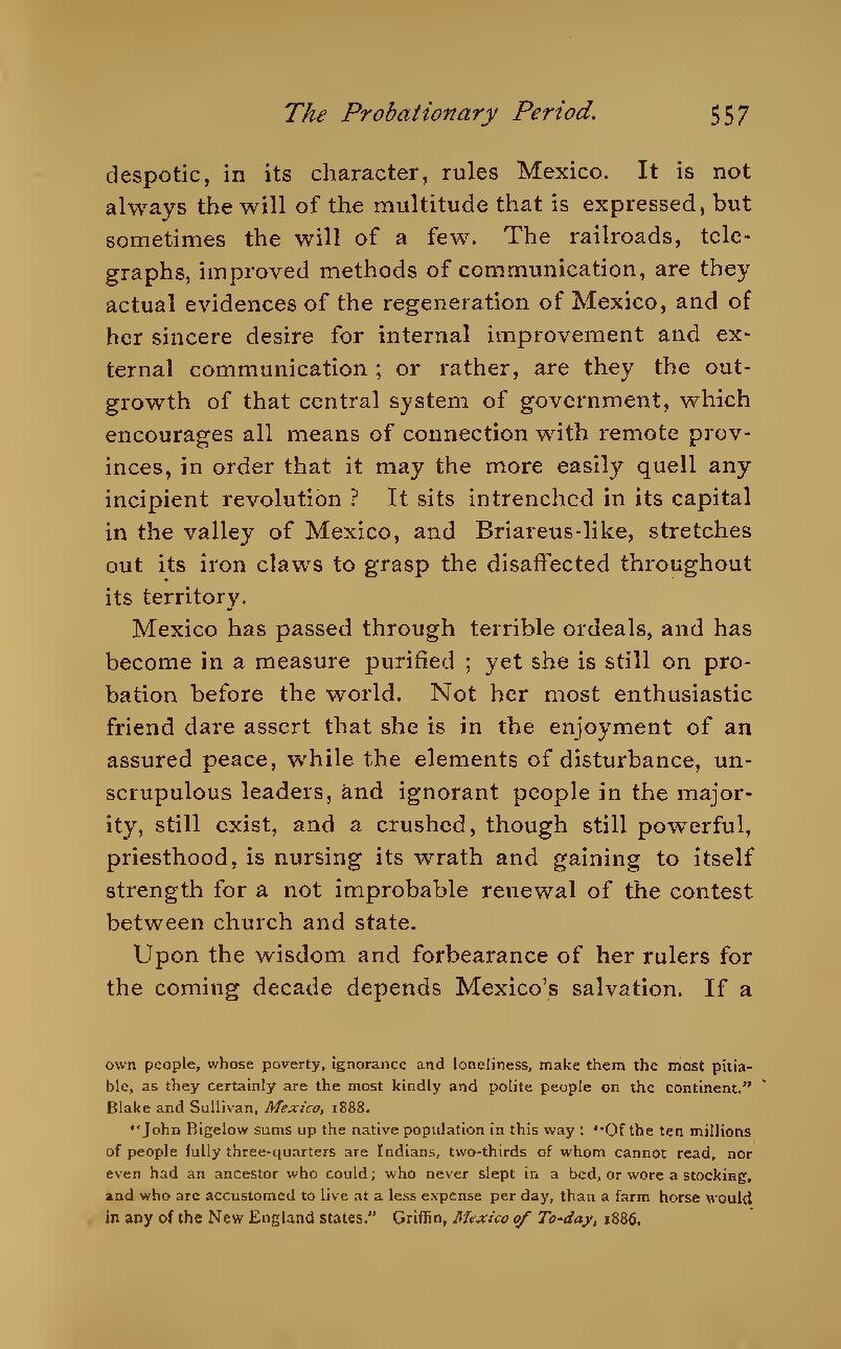despotic, in its character, rules Mexico. It is not always the will of the multitude that is expressed, but sometimes the will of a few. The railroads, telegraphs, improved methods of communication, are they actual evidences of the regeneration of Mexico, and of her sincere desire for internal improvement and external communication; or rather, are they the out-growth of that central system of government, which encourages all means of connection with remote provinces, in order that it may the more easily quell any incipient revolution? It sits intrenched in its capital in the valley of Mexico, and Briareus-like, stretches out its iron claws to grasp the disaffected throughout its territory.
Mexico has passed through terrible ordeals, and has become in a measure purified; yet she is still on probation before the world. Not her most enthusiastic friend dare assert that she is in the enjoyment of an assured peace, while the elements of disturbance, unscrupulous leaders, and ignorant people in the majority, still exist, and a crushed, though still powerful, priesthood, is nursing its wrath and gaining to itself strength for a not improbable renewal of the contest between church and state.
Upon the wisdom and forbearance of her rulers for the coming decade depends Mexico's salvation. If a
own people, whose poverty, ignorance and loneliness, make them the most pitiable, as they certainly are the most kindly and polite people on the continent." Blake and Sullivan, Mexico, 1888.
"John Bigelow sums up the native population in this way: '"Of the ten millions of people fully three-quarters are Indians, two-thirds of whom cannot read, nor even had an ancestor who could; who never slept in a bed, or wore a stocking, and who are accustomed to live at a less expense per day, than a farm horse would in any of the New England states." Griffin, Mexico of To-day, 1886.
